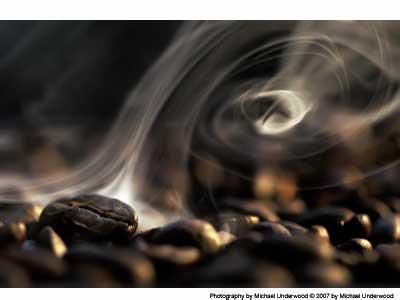Seven secrets of caffeine you don't know
According to the US Food and Drug Administration (FDA), 80 per cent of adults in the United States consume caffeine every day, and the average intake is about 200mg per day (equivalent to about two 5-ounce coffee drinks). With this data in mind, it makes sense when we look at the following survey results: most of the more than 7000 people surveyed said they prefer coffee-in terms of both drinking coffee and having sex. This is exciting news!

Still, even if you and your friends and family consume caffeine every day (and there may be signs that they are addicted to coffee), I bet you don't know much about caffeine. at best you only know (1) caffeine is found in coffee drinks and sodas; (2) it stimulates your energy. In fact, there's a lot more you need to know about caffeine, a legal drug that many people love.
1. Caffeine has a positive effect on improving short-term and long-term memory. In the past, a large number of studies have shown that caffeine has a positive effect on short-term memory, and recent studies have also shown that caffeine has a positive effect on long-term memory. "consuming 300 milligrams and 400 milligrams of caffeine a day can prevent cognitive decline and Alzheimer's syndrome." "getting enough sleep is also important to prevent Alzheimer's syndrome, so keep that in mind if you're allergic to caffeine," said Jaclyn London, a senior dietitian at Mount Sinai Hospital in New York City.
two。 Caffeine can improve sports performance. Taking in the right amount of caffeine about an hour before fitness or competition can improve your exercise performance. "Statistics show that caffeine has a great effect on increasing alertness and shortening reaction time." "what's more interesting is that caffeine lowers your perception of effort," says London. In other words, after consuming the right amount of caffeine, you will put more effort into the same amount of work.
3. The effect of caffeine on the human body is almost immediate. Caffeine can easily cross the blood-brain barrier, so the central nervous system is stimulated quickly, which means you feel more alert and affected immediately after consuming caffeine. until the effect reaches its peak (30-60 minutes after caffeine intake).
4. Caffeine content varies from coffee to coffee. A study published in the journal Analytical Toxicology shows that Starbucks'16 ounces of coffee contains 100mg more caffeine than the same cup of coffee from Dunkin' Donuts. The study also found that caffeine levels in the same drink from the same chain may vary from day to day, with a difference of up to 300mg. A standard cup of coffee contains about 90,225 milligrams of caffeine, London said.
5. A cup of Espresso coffee contains much less caffeine than other coffees. Many people think that Espresso coffee is high in caffeine. London said that a cup of Espresso coffee contains 40 to 70 milligrams of caffeine, which is much lower than that of a regular cup of coffee. Since drip coffee contains much more caffeine, if you are sensitive to caffeine, order coffee drinks based on Espresso coffee, such as cappuccino.
6. Caffeine won't dehydrate you. Since 98% of caffeine is consumed in drinks, according to FDA, you are hydrating while you consume caffeine. So although caffeine is a diuretic, it doesn't dehydrate you. However, this does not mean that you can only drink caffeinated drinks; enjoy coffee drinks in moderation, and don't forget that water is still the best drink for hydration.
7. The source of caffeine is not just a variety of drinks. Chocolate is also one of the main sources of caffeine, and caffeine can be added to almost all kinds of foods or substitutes, which is why you can always find caffeine in drugs such as Midol. So, if you have heart disease or high blood pressure, be sure to consult your doctor when taking any caffeinated analgesics.
Important Notice :
前街咖啡 FrontStreet Coffee has moved to new addredd:
FrontStreet Coffee Address: 315,Donghua East Road,GuangZhou
Tel:020 38364473
- Prev

From cafe to barista contest
For baristas, the barista competition is a new world. Although the national barista competition has been held in China for more than 10 years, the number of barista competitions is still limited, and only the champion can be promoted to participate in higher-level competitions. For example, in the World Barista Competition, each participating province in the country sends a locally selected champion.
- Next

Coffee in Paris is not for drinking.
In the streets of Paris, a cup of coffee, a seat, maybe an afternoon. No other city in the world can give you such a leisurely feeling like a cafe in Paris. Many people say that the French carve pride into their bones, write romance on their faces, and dissolve their interest into their blood. The first thing many Parisians do when they wake up in the morning is to drink coffee.
Related
- Beginners will see the "Coffee pull flower" guide!
- What is the difference between ice blog purified milk and ordinary milk coffee?
- Why is the Philippines the largest producer of crops in Liberia?
- For coffee extraction, should the fine powder be retained?
- How does extracted espresso fill pressed powder? How much strength does it take to press the powder?
- How to make jasmine cold extract coffee? Is the jasmine + latte good?
- Will this little toy really make the coffee taste better? How does Lily Drip affect coffee extraction?
- Will the action of slapping the filter cup also affect coffee extraction?
- What's the difference between powder-to-water ratio and powder-to-liquid ratio?
- What is the Ethiopian local species? What does it have to do with Heirloom native species?

